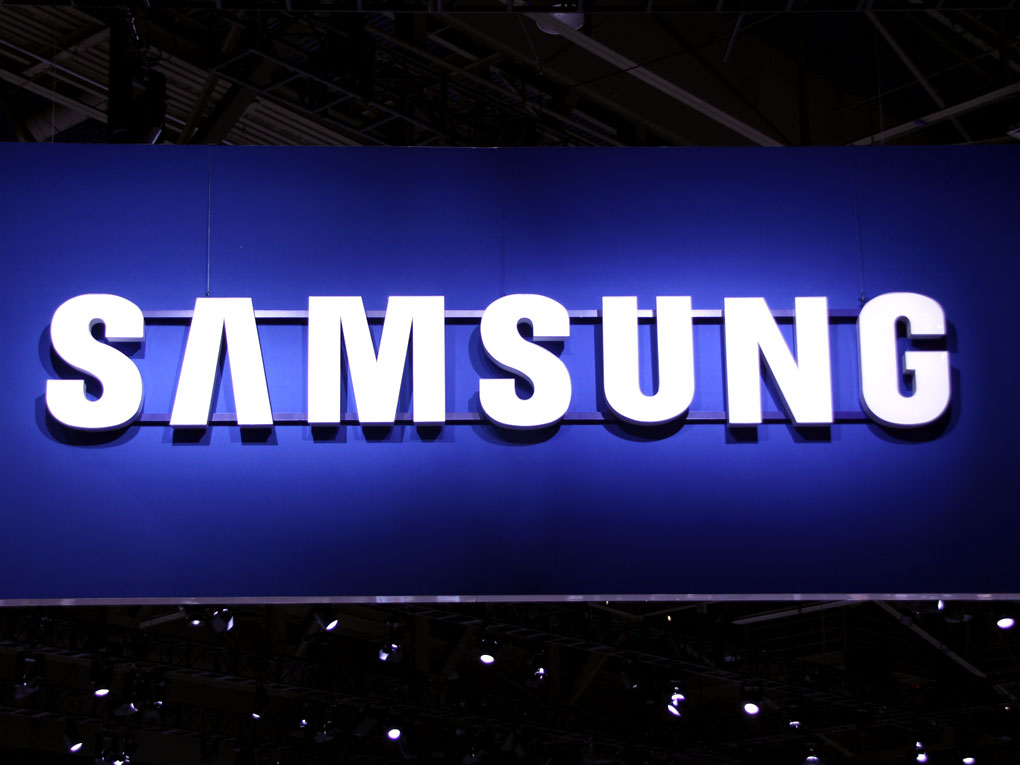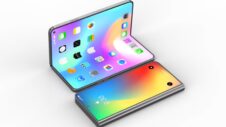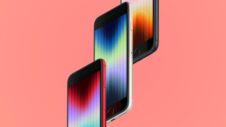The two smartphone manufacturers that benefited the most from the ecosystem driven smartphone revolution in the recent past are Samsung and Apple. Together these two companies account for 90% of the smartphone industry’s profits. No wonder, this brutal control and dominance by these two companies made every other manufacturer struggle for survival, forget about growth. In trying to reclaim the lost ground to these giants, some companies got financially hurt, while few others were forced to extinction or reincarnation. This dominance made other competitors to rethink and restructure their businesses, and these business transitions helped Samsung and Apple strengthen their foot print even more, by providing a window period of virtually no or little competition.
In this period of exponential growth, Samsung transformed itself into the world’s largest manufacturer of smartphones through impressive vertical integration, robust sales and after sales network, faster product development cycles, aggressive marketing, fancy innovation, and carpet bombing of products at every imaginable price point and size. Within a very short span of time, Samsung’s Galaxy line of smartphones became the most preferred choice for smartphone customers, driving sales into hundreds of millions and profits into billions. On the other hand, during the same period, Apple created its most successful and profitable product ever in the form of iPhone. Combination of the device quality, app ecosystem, brand value, slick advertising, and cult fan following resulted in record breaking iPhone sales year after year. Although, by limiting itself to the premium segment, Apple couldn’t match the sales figures of Samsung, it compensated itself handsomely by taking lion’s share in the smartphone industry’s profits. Though the strategy has worked astonishingly well for Apple in terms of profits, it has restricted Apple’s market share and reach.
However, in the past year or so, things started slowing down for Apple. Minor and iterative iPhone updates; frustratingly restrictive ecosystem; minimal customization options; market saturation in the premium segment; and availability of compelling choices in the open Android ecosystem, have all resulted in declining growth rate of iPhone. Samsung, however, by capitalizing on every available opportunity in the market, has been able to grow across different market segments and price points. Even though flagship Samsung phones faced severe competition in 2013, it was able to negate the slowdown of growth rate by doing well in other market segments. Few years back, market offered plenty for both Samsung and Apple to gain without hampering each other’s growth, but now it appears as though one has to lose for the other to gain. In this win-lose scenario, can Apple fight Samsung’s smartphone dominance in 2014? Will the iPhone cast a spell to reign supreme once more? This is undoubtedly the most anticipated fight of 2014 in the smartphone arena.
The rivalry between Samsung and Apple has grown to epic proportions in the past few years. This has divided the entire smartphone geek community into two fiercely opposing forces. Both the companies are at war not just in the market, but even in the court rooms over patent disputes. Samsung has been the most aggressive of the two by directly targeting Apple and its followers while marketing the flagship Galaxy products. In reality, this aggressive marketing strategy has helped Samsung to lure away customers from the Apple ecosystem who have been looking for viable alternatives. Gradual growth and maturity of the Android ecosystem has assisted Samsung in establishing the flagship Galaxy line up as a no compromise choice for those willing to make the switch. Countering this impact on iPhone sales, Apple has been able to gain customers from Samsung and Android ecosystem by expanding the availability of iPhone into Samsung dominant markets, and aggressively offering the iPhone on major carriers around the world. To Apple’s credit, it has done exceptionally well in spite of the availability in limited number of markets. So, now with Apple intensifying its reach into all major markets, it may not be an easy ride for Samsung to sell devices in the premium segment, considering the uninspiring design language of Galaxy products.
In reality, the smartphones from these two companies represent two different ideologies. While the Apple iPhone prefers form over function, and heavily controlled user experience, Samsung prefers function over form, and customizability – ideologies which target two different segments with slight over lapping. In 2014, if Samsung can launch the Galaxy S5 or the rumoured F Series with a premium industrial design rivalling iPhone, then it can definitely win over those customers sticking to Apple for the sole reason of design aesthetics. On the other hand, if Apple can launch the rumoured phablet with stylus functionality, then it can definitely lure away customers who have been sticking to Note smartphones for large screen and S Pen functionality.
While a mere look at the smartphone line up of these companies fail to point the possible outcomes in 2014, analyzing them in the light of smartphone industry trends predicted for 2014 can definitely help in comprehending the their strengths with respect to the opportunities. The trends widely predicted for 2014 include rapid growth in the emerging markets; rising demand in the mid to low range segment; commercialization of wearable tech; and smartphone integration across various products and appliances. It is in the light of these trend forecasts, Apple is most likely to face slowdown in 2014.
Smartphone markets in developed countries are quickly getting saturated, and all the rapid growth in the industry is driven by the growing demand in emerging markets like Brazil, India, and China etc. Also, most of this demand exists in mid to low range price points. These emerging markets are price sensitive, and that’s never a happy sign for Apple who always targets the premium segment with a premium price. To make matters worse, these developing countries don’t have a huge market for carrier contracts as the ARPU (Average Revenue per User) is significantly less when compared to the developed countries. Lack of carrier contracts translate to prohibitive cost for buying an iPhone in these emerging markets and will definitely impact the growth of IOS ecosystem in these regions. Samsung, however, with its robust sales and after sales network, brand value, and economies of scale associated with vertical integration, is better positioned to capture these markets through a wide portfolio of smartphones at different price points. Considering that Samsung accounts for 63% of the global Android market share, every lost customer for Apple in these markets has 63% chance of becoming a customer for Samsung if he wishes to opt for Android ecosystem. Given how young Windows Phone ecosystem is, there is high probability of Android being chosen if one wishes to move away from IOS. So, unless Apple launches smartphones at lower price points, it’s difficult for Apple to penetrate these markets, which translates into an opportunity for Samsung to sell more of its products.
The biggest opportunity for Samsung and the threat for Apple lie in Samsung’s wide portfolio of products, not just smartphones. Apple mainly makes smartphones, tablets, desktops, laptops, and music players etc. Whereas, Samsung invades the homes across the world with their wide range of home and kitchen appliances, electronic gadgets including smartphones, tablets etc. This provides Samsung an irresistible opportunity to build an ecosystem of Samsung products for smarter homes, where all the appliances connect and communicate with the smartphone. If Samsung can pull out such tricks out of its hat, it will add immense value to its smartphones and other products. If 2014 marks the trend of smart homes and connected living, then Samsung is way better placed than Apple to reap the benefit. However, as rumoured, if Apple can introduce new product categories like smart watch, TV etc that add value to its smartphone as well, then perhaps the scenario is slightly different. Overall, the sheer magnitude of the Samsung product portfolio gives it an advantage that will be difficult for Apple to negate within a span of one or two years.
Another related shortcoming that could restrict Apple from doing serious harm to Samsung is Apple’s narrow product line, offering just one or two current generation iPhone models at a time. The strategy of ‘One iPhone fits all’ may not work effectively like it did in the past. With the ever growing popularity of phablets, trend of mini versions, inception of curved screen phones, and aspirations for modular phones, it’s going to be a tough task for Apple to follow the existing strategy. If Apple expands its product line up, then there arises the dreaded fragmentation which Android has always been accused of. This will adversely affect the premium image usually associated with Apple. So, which bullet does Apple bite? Both ways, Samsung will have something to gain – more market share or less coherent IOS ecosystem.
Apple is relying entirely on in house development, while Samsung is building on Google’s Android initiatives. Much of iPhone’s success depends upon the developments in IOS and vice versa. This puts Apple in a situation where it needs to get both the iPhone and IOS right every time. Whereas, Samsung has the choice to use any open or licensed OS like Android, Windows Phone, or Tizen etc depending upon the opportunities and advantages on offer. This gives Samsung the ability to respond to obstacles and opportunities very quickly as they arise in the future. So, all things considered, there is no reason to believe why Apple can shake the dominance of Samsung in 2014 or the near future? In fact, bearing in mind the markets and segments where the growth is poised to happen, and the opportunities it presents to Apple and Samsung, it appears from the face value at least, Samsung will do more damage to Apple in 2014 than the other way round. In the given conditions, competitive threat for Samsung is more from other Android manufacturers and Nokia, than from Apple.
This article was written by our guest blogger, Naresh Nekkanti (you can follow him at @nekkantinaresh on Twitter), and will be part two of a multi-part series of articles analyzing Samsung’s challenges in 2014, and its stand among the competition.







